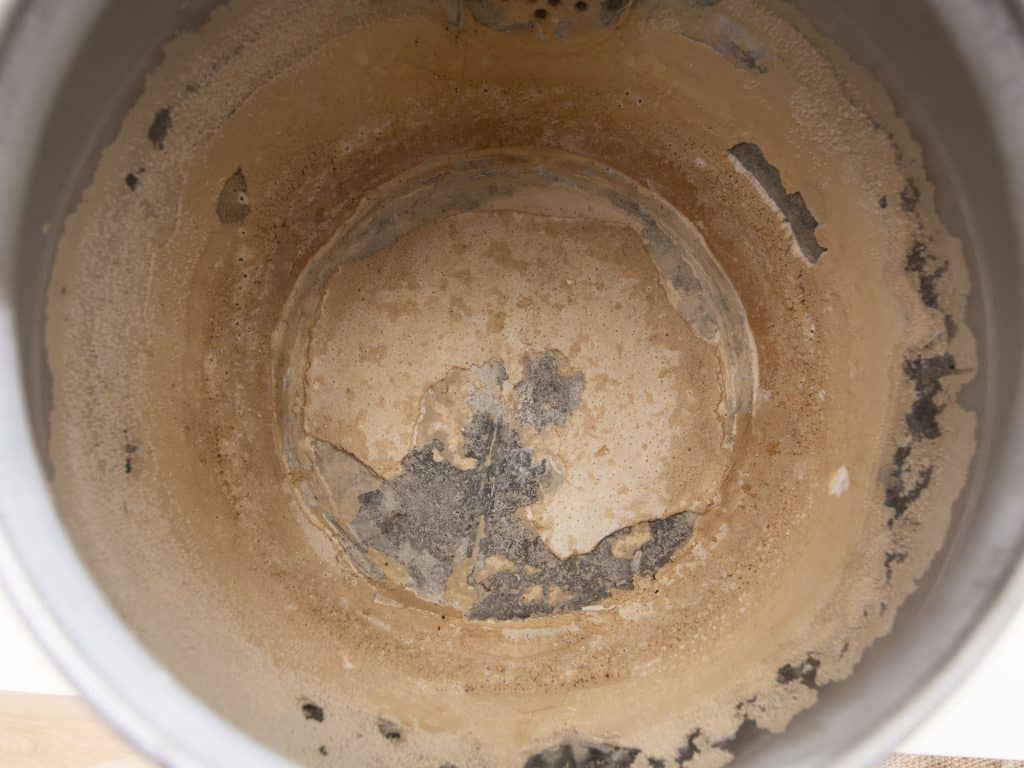Water quality in spray tanks is crucial for several reasons, especially when it comes to the efficacy of the application and the longevity of the equipment. If you are an applicator your access to a standard quality of water may be limited depending on your geography. Hard water is one of the most common problems faced in water quality that causes problems in a spray tank mixture.
Water Hardness
Hard water is water containing dissolved minerals, mainly those of calcium, magnesium, and or a variety of other minerals. The amount or concentration of these minerals determines the threshold of categorizing water as hard or soft. General guidelines for classification of waters are: 0 to 60 mg/L (milligrams per liter) of calcium carbonate is classified as soft; 61 to 120 mg/L as moderately hard; 121 to 180 mg/L as hard; and more than 180 mg/L as very hard. Milligram per liter and parts per million (ppm) are equivalent. These can be tested using Professional lab kits or certified lab testing services. It is important to note that over 85% of the USA has hard water. Even if you are using domestic well water in your tank mix, the majority of domestic well water in the US is considered hard.
Hard Water, in general, does not pose a health risk to the public and is therefore not regulated by state or federal agencies. This means that the water you are using in your tank mixture is not regulated for water hardness unless you are measuring water hardness on a regular basis. The minerals that cause water hardness are essential for human health but not necessarily great for mixing pesticides.

Water Hardness and Spray Tank Mixtures
Using hard water in spray tank mixtures for herbicide applications can lead to several problems, both in terms of efficacy of herbicide applications and equipment maintenance. Hard water contains high levels of calcium, magnesium, and other minerals. When these minerals interact with certain herbicides or additives, it can lead to various challenges:
- Reduced Herbicide Efficacy: Some herbicides, especially those that are weak acids like glyphosate (Roundup, Rodeo, Glyphomax, etc), can bind with the cations (like calcium and magnesium) present in hard water. This binding forms insoluble compounds with the active ingredient of the herbicide. This reduces the herbicide’s solubility and its ability to pass through the surface of the leaf (leaf cuticle) to the specific site of where it needs to reach for the herbicide to be effective. Therefore, the effectiveness of the herbicide is reduced and as a result, the weeds may not be controlled as expected. Several other weak acid herbicide active ingredients include 2,4-D (HiDep, Weedar 64, Weedone L V64, etc), Acifluorfen, Dicamba, Glufosinate, Triclopyr, etc.
- Formation of Precipitates: When certain herbicides and additives react with the minerals in hard water, they can form precipitates or solid particles. These particles can block nozzles and screens, making application uneven and leading to equipment downtime for cleaning.
- Equipment Wear and Tear: The minerals in hard water can cause scale buildup in the spray equipment. This not only requires more frequent cleaning and maintenance but can also reduce the lifespan of the equipment.
- pH Fluctuations: Hard water can sometimes lead to pH fluctuations in the spray mixture. Certain herbicides require a specific pH range for optimal performance, and hard water can shift the pH out of this optimal range.
- Poor Tank-mix Compatibility: Hard water can sometimes cause compatibility issues when mixing multiple products. This can lead to the formation of gels or other undesirable mixtures that are hard to spray and may not provide effective weed control.
Solutions to Water Hardness and Spray Tank Mixtures
- Water conditioners such as Ammonium Sulfate (AMS) or other AMS replacements: Adding AMS to the spray tank can prevent the binding of herbicides like glyphosate with the cations in hard water. AMS binds with these cations first, preventing them from interacting with the herbicide. This is particularly the case with certain weeds, such as velvetleaf and some perennials. Other benefits of having water conditioners improve the herbicide efficacy in cold or adverse conditions, and the reduction of compatibility issues.
- pH Adjusters: If hard water is affecting the pH of your spray solution, pH adjusters can be used to bring the mixture back into the optimal range.
- Test Before Mixing: Always conduct a jar test before mixing large quantities in the spray tank. This can help identify any potential incompatibility issues.
- Water Softeners: These are devices that can be used to remove calcium and magnesium from the water, converting hard water into soft water. The price varies but the principle of how they work is exchanging the minerals responsible for hard water with minerals such as sodium and potassium. Although sodium and potassium are not primarily responsible for hard water, they have been found to reduce efficacy of weak acid herbicides by a similar mechanism of hard water minerals to a lesser extent.
By understanding the challenges posed by hard water and taking appropriate measures, you can ensure that your herbicide applications are effective and that your equipment remains in good condition. Brewer International supplies several Adjuvants with this water conditioning property to improve the efficacy of weak acid herbicide applications and tank mixing compatibility. In addition, we also have products to improve the pH and promote optimal environment for herbicides such as Glyphosate and 2,4-D to work effectively. These products include surfactant pH with nitrogen, AquabupH, and Sun Control.
Ready to start something great?
Let us help you decide if our products are the right fit for you by answering any questions you may have.


